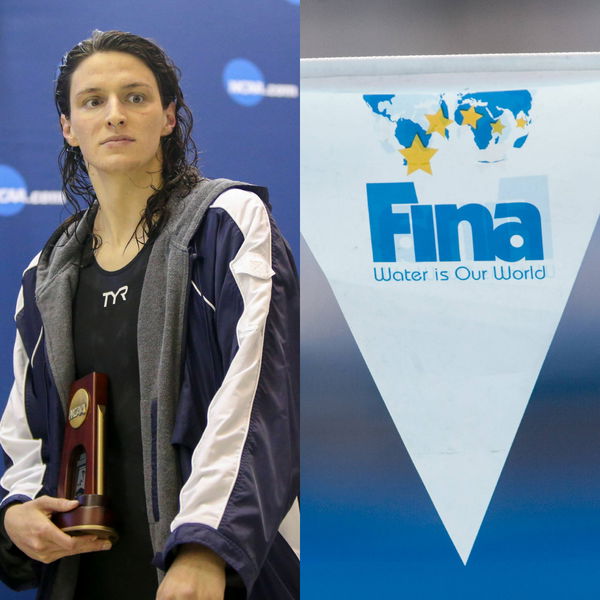
via Imago
Image Courtesy: Imago

via Imago
Image Courtesy: Imago
In 2022 FINA, the international swimming federation banned all transgender athletes who had transitioned after the age of 12. They were banned not from the sport, but from elite swimming competitions. Up until the recently concluded World Aquatics Championships in Fukuoka, transgender swimmers were ineligible to participate in elite swim tournaments. However, last month, World Aquatics President, Husain Al-Musallam revealed that the swimming body will be shortly initiating an open category in order for the sport to be more inclusive and accessible.
The upcoming Berlin Swimming World Cup 2023, which is slated for October 6-8 will be the first elite tournament to include this trial category. This new initiative aims to create a welcoming space for swimmers of all genders and identities. This news means that if Lia Thomas qualifies for the tournament, she will make her debut in elite swimming in Germany.
ADVERTISEMENT
Article continues below this ad
Lia Thomas eyes her elite swimming debut
Last year, Lia Thomas became the first transgender woman to conquer a national swimming event. She won the women’s 500m freestyle while competing in the NCAA championships. Her win proved to be a major divide in the swimming world as it pitted two viewpoints against each other. While many supported her and congratulated her on paving the way for trans athletes, many highlighted her unfair biological advantages over women.
Soon enough, FINA decided to ban all trans swimmers from elite swimming competitions. However, with the upcoming Berlin championships, the swimming world will witness its brand new open category and Lia Thomas will have the opportunity to make her elite swimming debut in Berlin. This new trial category will be applicable to all 50m and 100m distances across all swimming strokes.

If the swimming body finds conclusive data of success, then it is open to include more categories in the future. The stage for this new category will be a 50m pool, aligning with international standards for aquatic competitions. All participants competing in the open category will take part in timed finals over the course of two tournament days.
According to a World Aquatics report, World Aquatics President Husain Al-Musallam said, “True to our word, a team of experts has diligently worked to make this a reality. I would like to thank all those who have helped World Aquatics to deliver this opportunity.” As far as the eligibility criteria are concerned, swimmers have to be affiliated with a national federation which will grant them the flexibility to participate individually, as part of their club, team, or even as representatives of their national federation. However, swimming wasn’t the only sport that banned trans athletes.
ADVERTISEMENT
Article continues below this ad
Cycling bans trans athletes
Earlier this year, the UCI banned all female transgender athletes who transitioned after male puberty. This decision was taken by the UCI after female trans cyclist Austin Killips won a vital U.S. stage race. The UCI emphasized that this decision is being taken to ensure fairness and equal opportunities for all athletes. Despite already having rules earlier, the UCI decided that scientific knowledge cannot conclusively confirm a number of factors like gender-affirming hormone therapy. This may result in an unfair biological advantage to female trans athletes and which is why the UCI banned them.
Read more: After FINA, World Athletics Also Hints at a Huge Change in Sport for Trans Athletes
As far as swimming is concerned, they have made a U-turn on their earlier decision. With the introduction of the open category, the Berlin Swimming World Cup 2023 promises to redefine the landscape of aquatic sports. As the sport aims to embrace the ethos of unity, diversity, and limitless potential of all swimmers, it remains to be seen how the world of swimming will work with this new category and the response that follows.
ADVERTISEMENT
Article continues below this ad
Watch this story: Grief Grips Texas As 4-Year-Old Tragically Loses Life in Swimming Pool Incident
ADVERTISEMENT
ADVERTISEMENT
ADVERTISEMENT
ADVERTISEMENT

